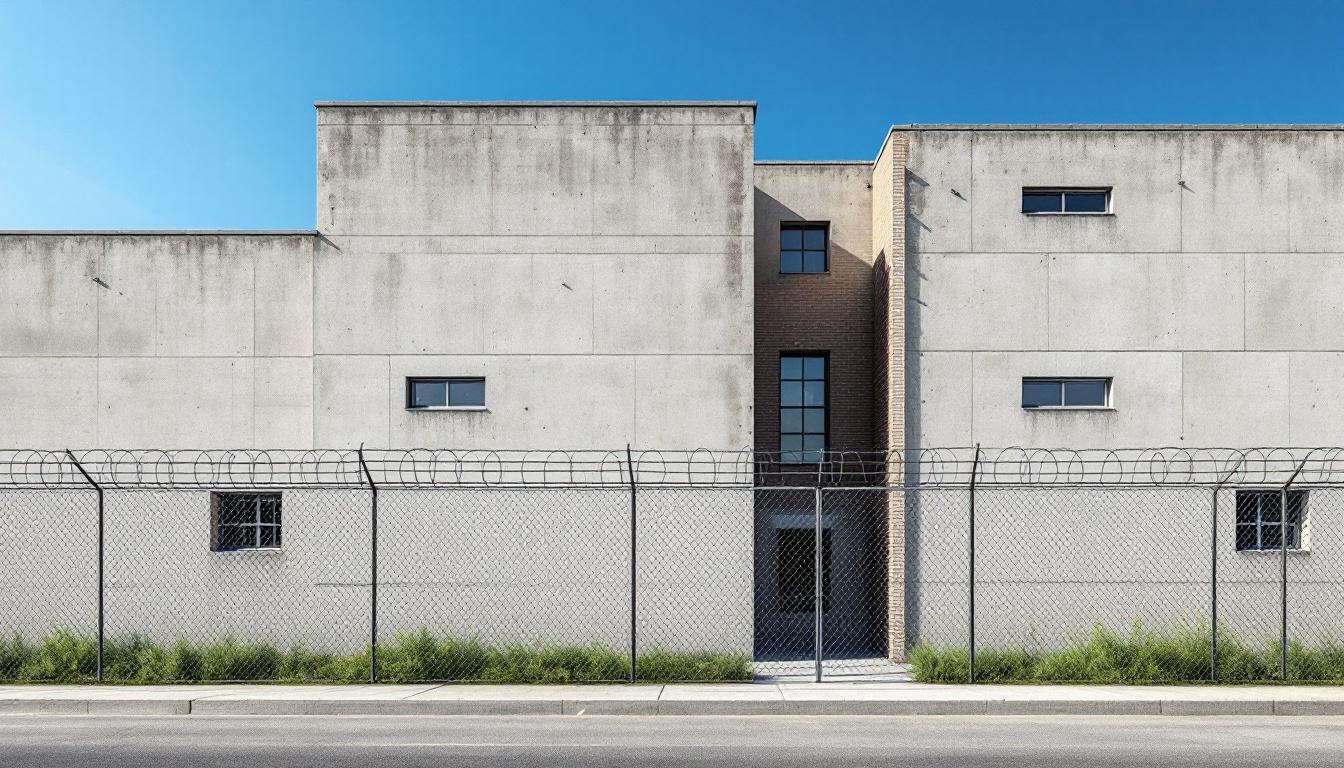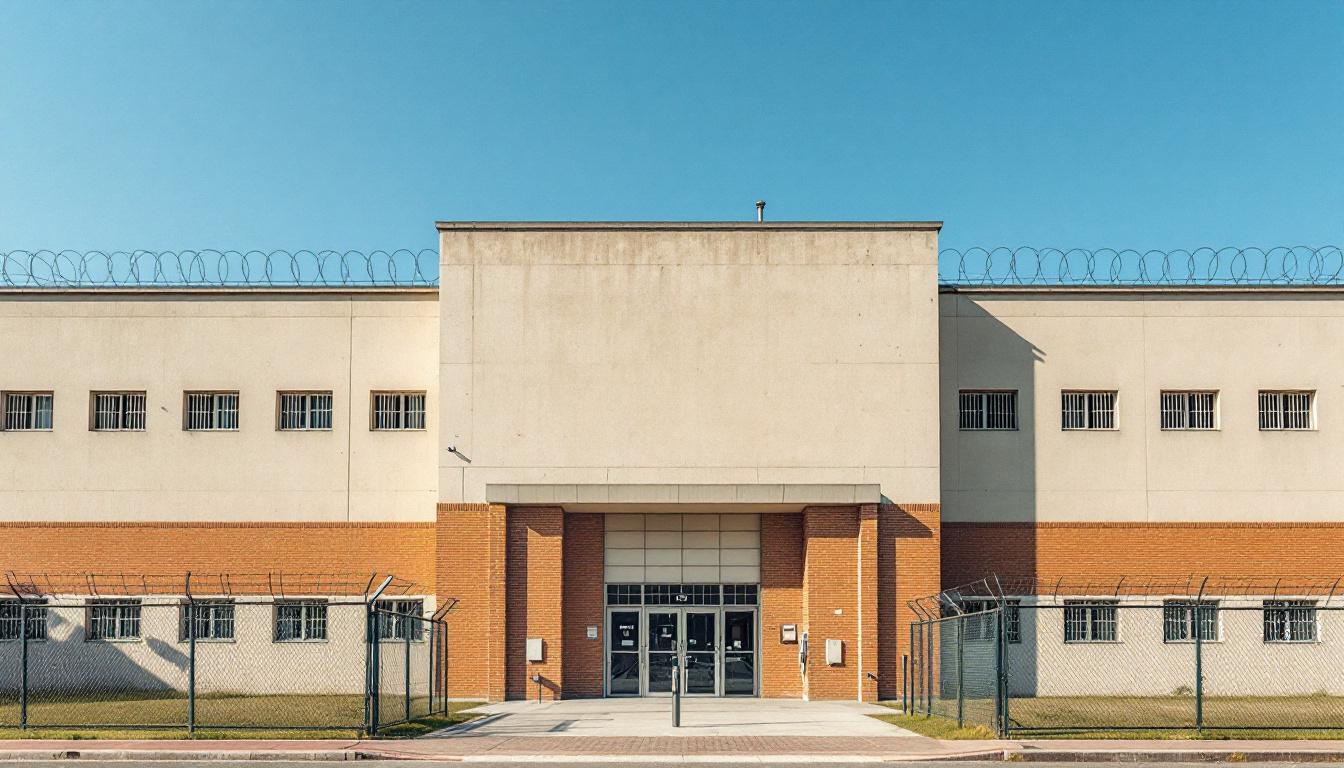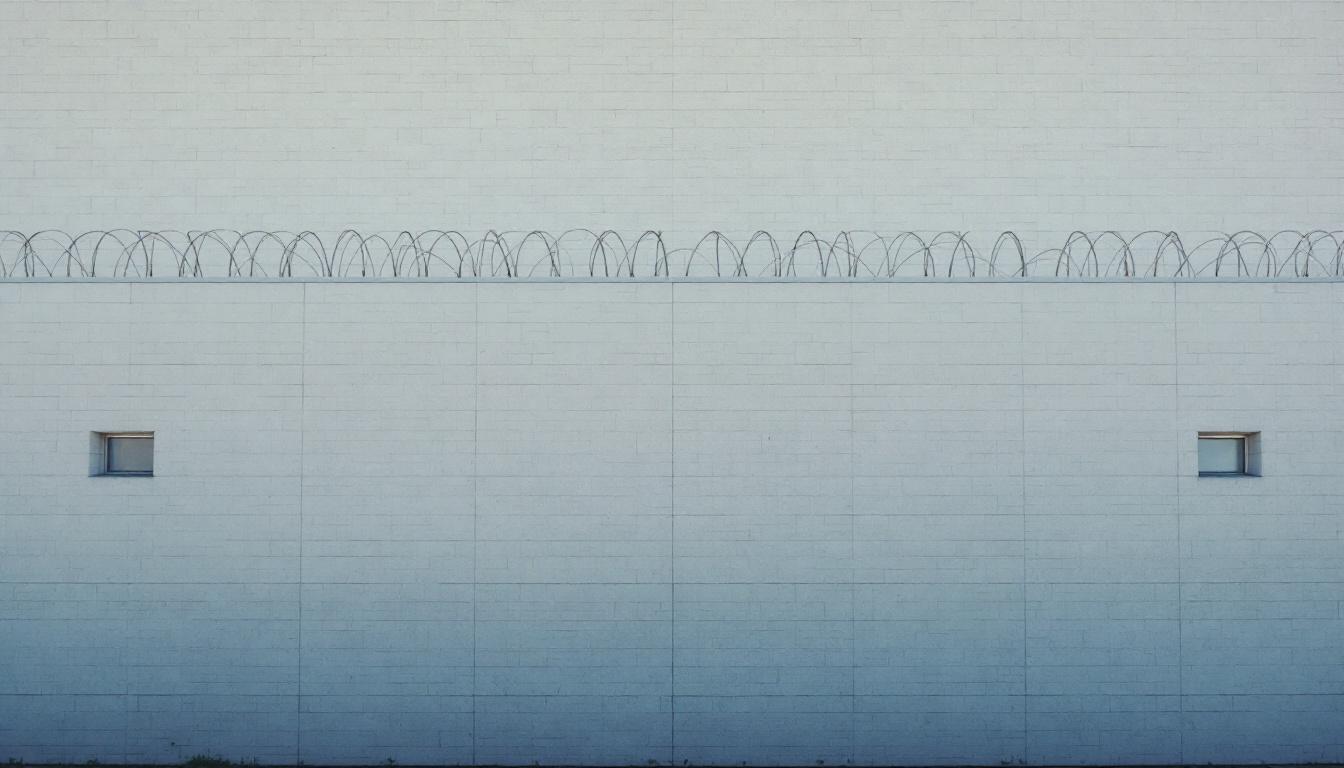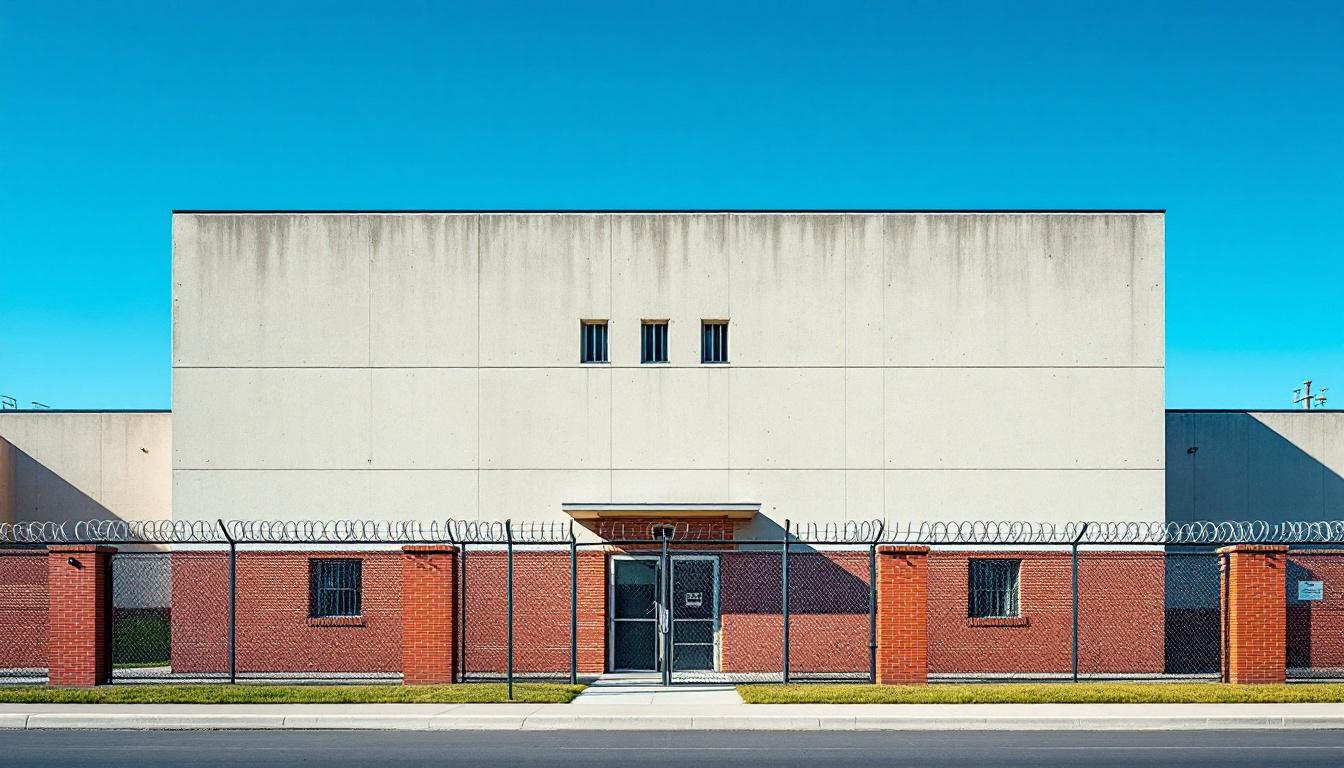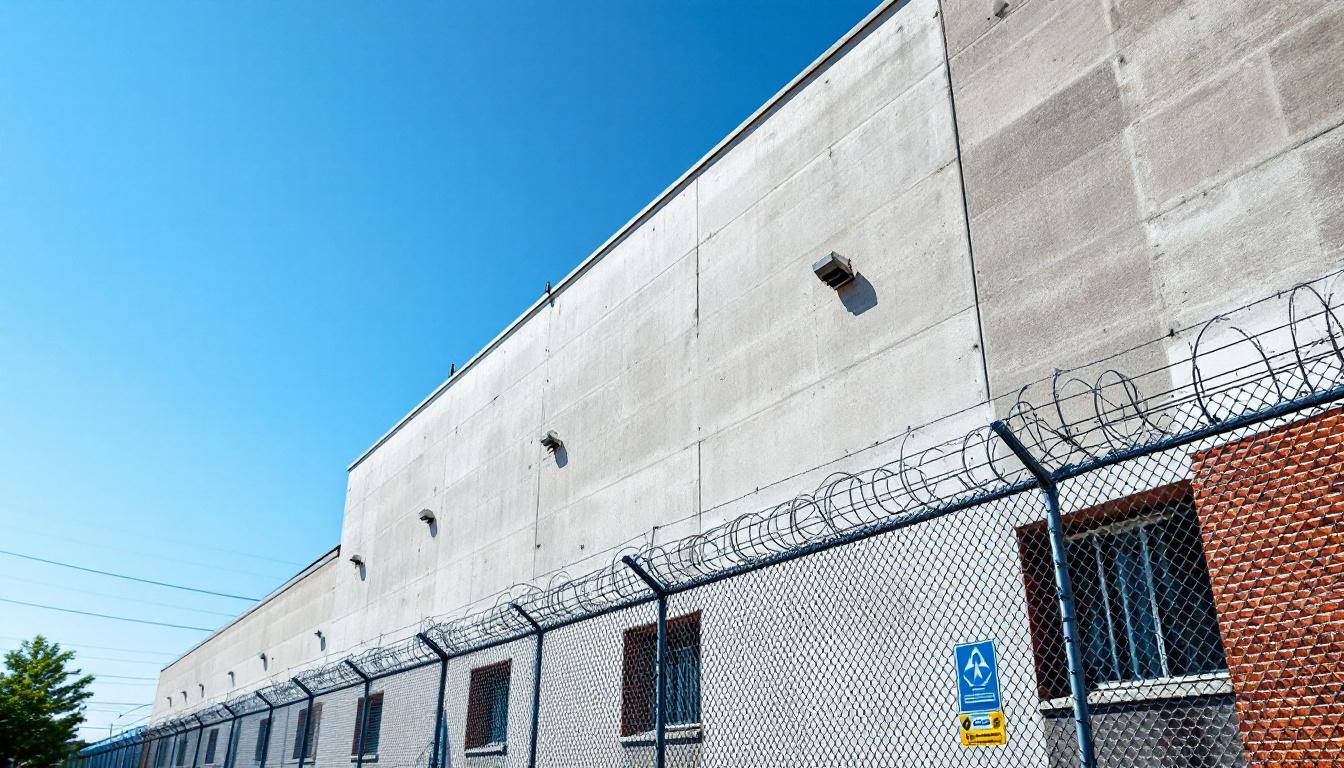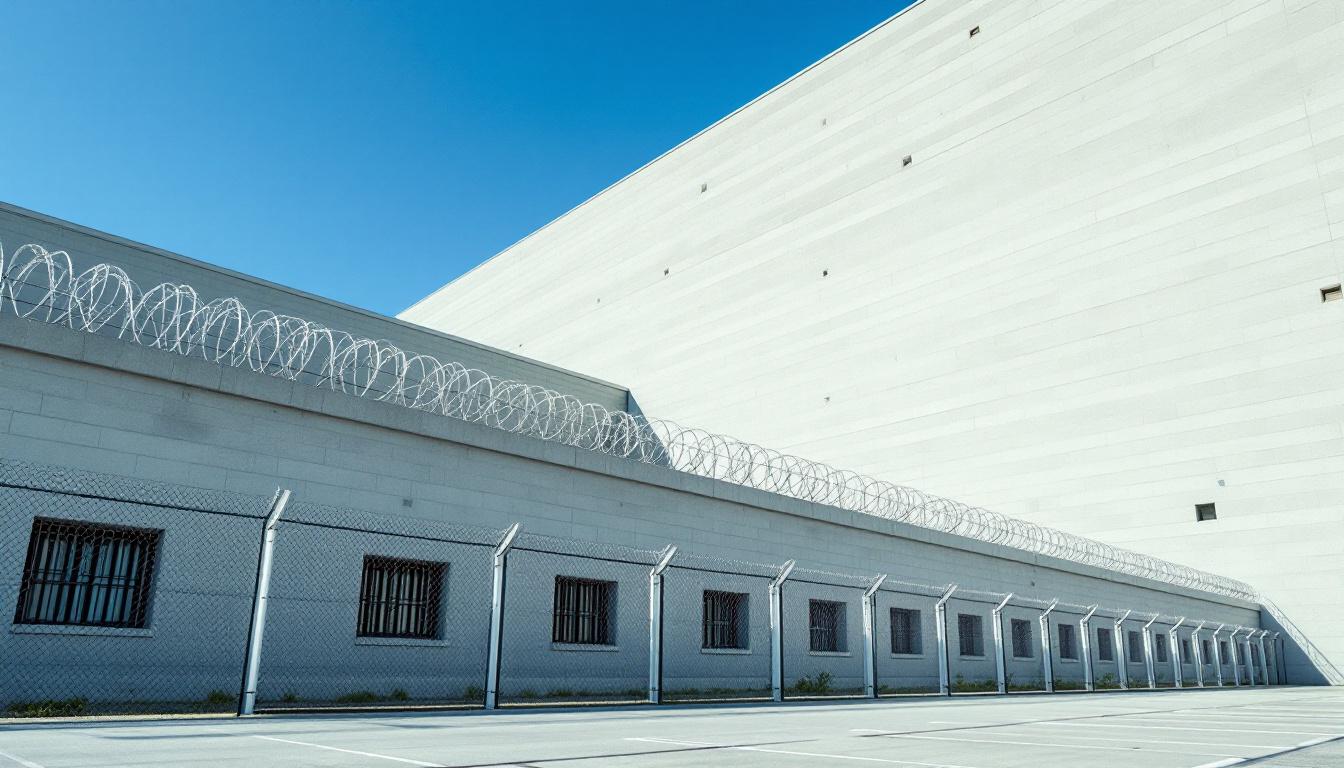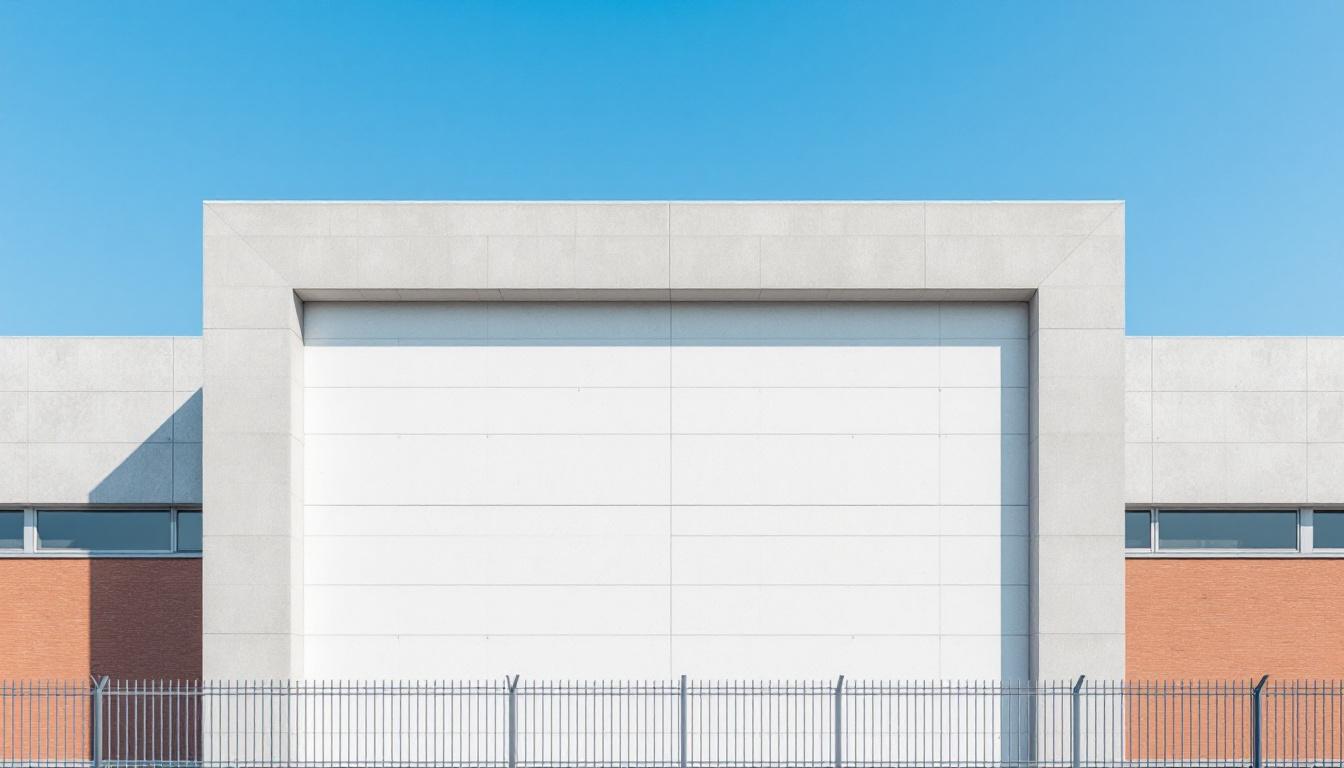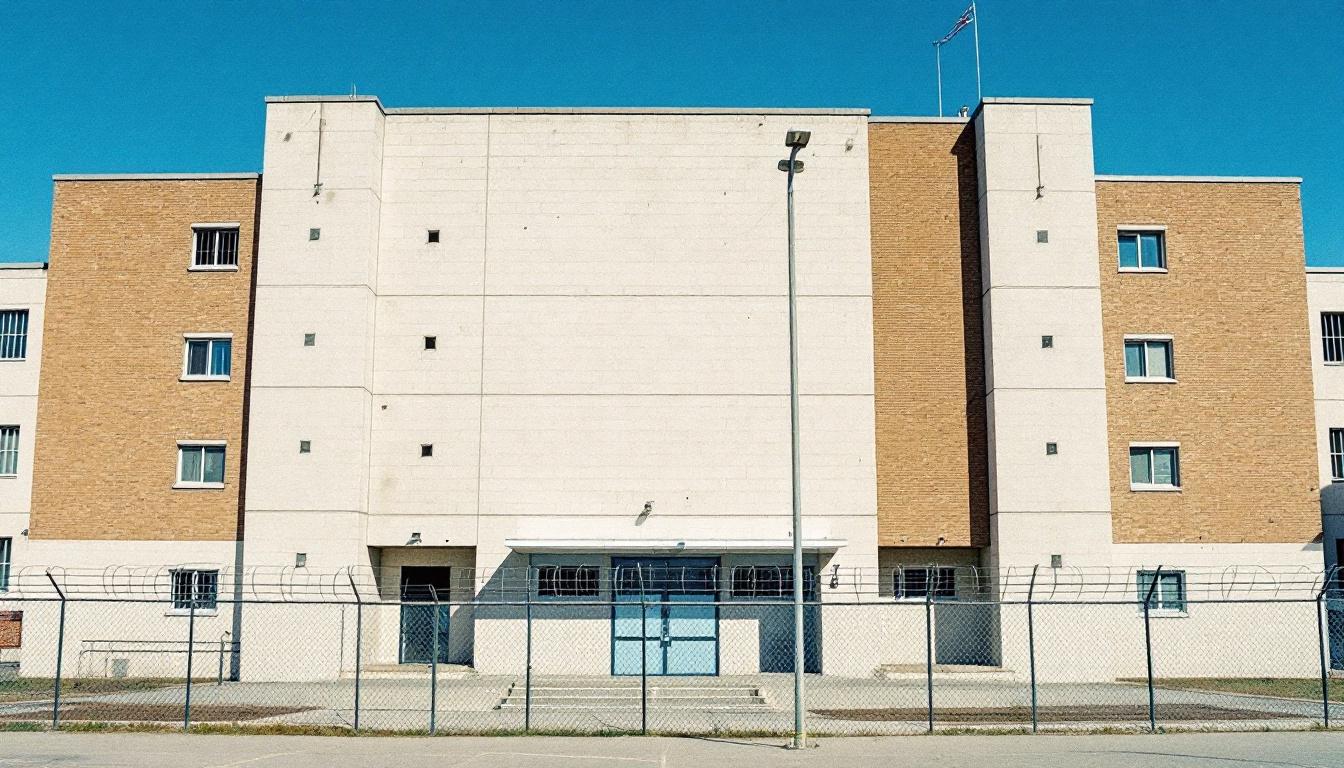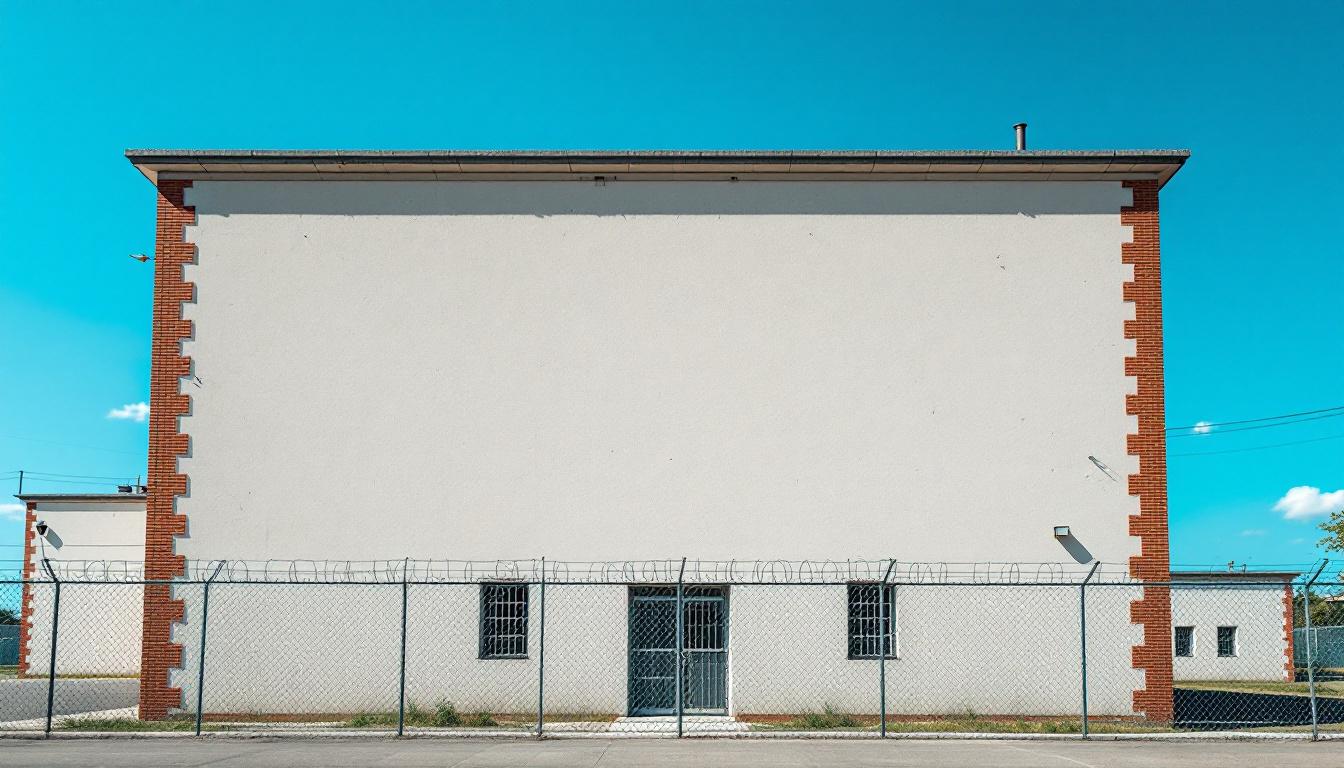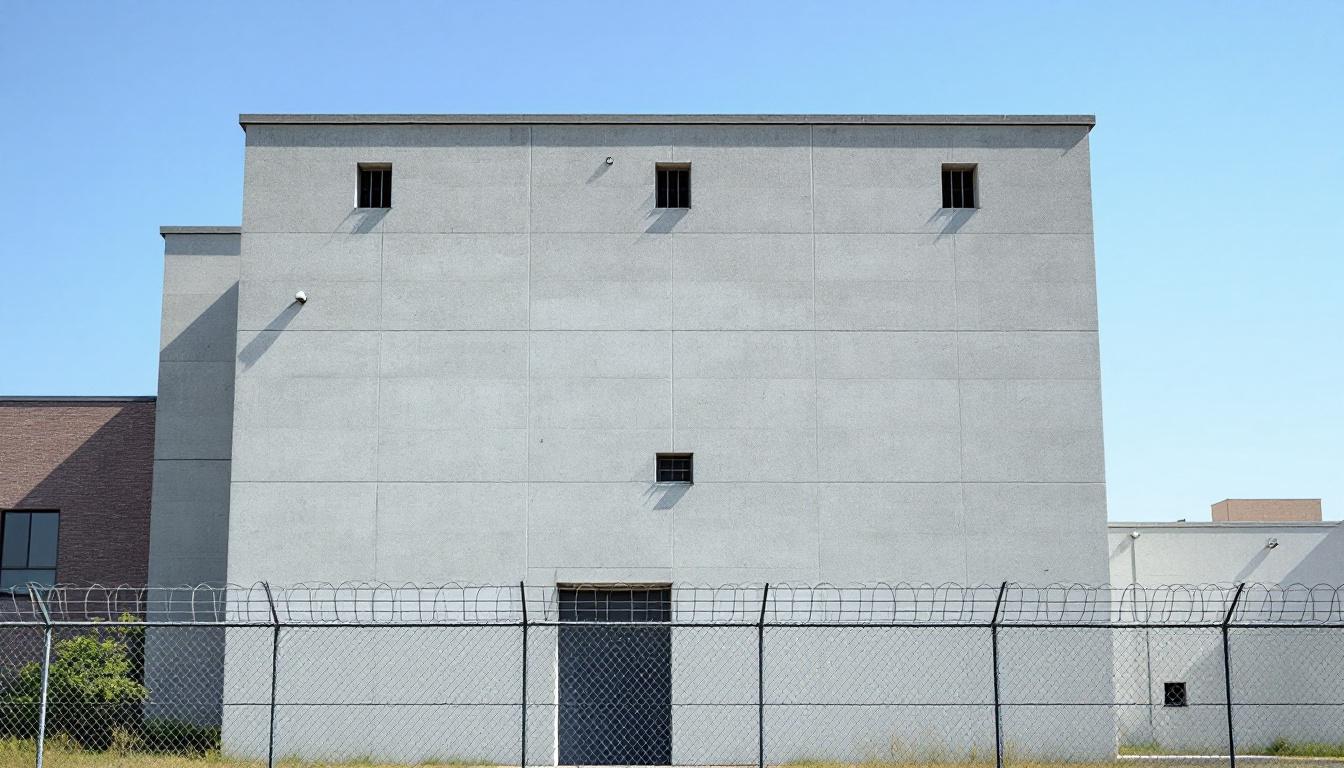
Quick Navigation
How to contact an inmate at Monroe County Justice Center
This comprehensive guide will walk you through how to connect with an inmate at Monroe County Justice Center. Follow the steps below to find an inmate and send letters and photos:
- Search for the inmate using our search tool below
- Create your account or log in to Penmate
- Write your message (up to 6,000 characters)
- Send instantly - inmates receive printed copies daily
Find an Inmate
Search for an inmate to start communicating today
Tip: You can search by first name, last name, or inmate ID number
To contact a person at Monroe County Justice Center start by searching for the person on the official facility website. Perform a search by following these steps:
- Step 1: Enter their first name and last name into the search form and click "Search"
- Step 2: Locate their inmate record
- Step 3: Write down their Inmate ID and any housing information provided
Important! Be sure to enter the person's full name. Nicknames should not be used.
How to Send Messages to Inmates

You can use your phone or computer to send emails, letters, and photos to an inmate. Messages are sent electronically to inmate tablets or kiosks at the facility. If you would like to send a message, start by searching for an inmate at Monroe County Justice Center.
Sending Photos and Postcards

A great way to send love and support to a loved one at Monroe County Justice Center is to send photos and postcards. It only takes a few minutes to send photos from your phone and it makes a huge difference. You can also mail postcards with words of support and inspiration, or design your own postcard for special moments like birthdays and holidays.
Important! Be sure not to send any explicit photos or they may not be approved by the facility. You can also use a photo printing app like Penmate to make sure your photos are printed at the correct size (4x6 or 3x5) and are mailed according to the rules and regulations of Monroe County Justice Center.
Frequently asked questions about Monroe County Justice Center
-
How long does it take to deliver a message?
If you're sending an email message your letter is usually delivered within 24-48 hours. For messages sent via mail you should expect delivery within 3-7 days. All messages will need be approved by Monroe County Justice Center.
-
How much does it cost to send a message to Monroe County Justice Center?
You can send a message free using your phone or mail a message via USPS for the price of a $0.60 stamp and envelope. You can also purchase credits or e-stamps from services starting at $1.99.
-
What services can I use to contact an inmate at Monroe County Justice Center?
Penmate
You can use Penmate to send letters and photos to an inmate from your phone. It's an easy way to stay in touch during your loved one's incarceration. Use the inmate locator to find an inmate's location and contact information, then you can send messages within a few minutes.
Securus messaging
Securus may be another option for communicating with an inmate at Monroe County Justice Center. You can create a friends and family account and purchase credits to send messages. All messages will be reviewed and must be approved by the facility.
JPay
Some county jails and state prisons may support sending messages with JPay. You must register an account with the system, find your loved one, and purchase stamps to send messages. For some locations you can also attach photos.
Smart Jail Mail
You may also check if Smart Jail Mail is available at Monroe County Justice Center. Smart Jail Mail is operated by Smart Communications and has contracted with some state and county jails. After purchasing credits, your messages and photos are sent to the facility, printed out, and then handed out to your loved one.
-
What is the mailing address of Monroe County Justice Center?
Mailing address:
Monroe County Justice Center
4500 New Hwy 68
Madisonville, TN 37354
Phone: (423) 442-3911Business hours:
- Monday: 8:00 AM – 4:00 PM
- Tuesday: 8:00 AM – 4:00 PM
- Wednesday: 8:00 AM – 4:00 PM
- Thursday: 8:00 AM – 4:00 PM
- Friday: 8:00 AM – 4:00 PM
- Saturday: Closed
- Sunday: Closed
-
What are the visiting hours at Monroe County Justice Center?
Visiting hours at Monroe County Justice Center vary by housing unit and security level. Generally, visits are scheduled on weekends and holidays, with some facilities offering weekday visits. Contact the facility directly at (423) 442-3911 or check their website for the current visiting schedule. Visits typically last 30-60 minutes and must be scheduled in advance.
-
What items are prohibited when sending mail to Monroe County Justice Center?
Prohibited items typically include: cash, personal checks, stamps, stickers, glitter, glue, tape, staples, paperclips, polaroid photos, musical or blank greeting cards, hardcover books, magazines with staples, and any items containing metal or electronics. Only send letters on plain white paper with blue or black ink. Photos must be printed on regular photo paper (no Polaroids). Always check with Monroe County Justice Center for their specific mail policies.
-
How do I send money to an inmate at Monroe County Justice Center?
You can send money to an inmate at Monroe County Justice Center through several methods: 1) Online using JPay, Access Corrections, or the facility's approved vendor, 2) Money orders mailed directly to the facility with the inmate's name and ID number, 3) Kiosks located in the facility lobby, or 4) Over the phone using a credit or debit card. Fees vary by method, typically ranging from $2.95 to $11.95 per transaction.
-
Can I schedule a video visit with an inmate at Monroe County Justice Center?
Many facilities now offer video visitation as an alternative to in-person visits. At Monroe County Justice Center, video visits may be available through services like Penmate, Securus Video Connect, GTL, or ICSolutions. Video visits typically cost $10-20 for 20-30 minutes and must be scheduled in advance. You'll need a computer or smartphone with a camera and reliable internet connection. Contact the facility for their specific video visitation policies and approved vendors.
-
What identification do I need to visit an inmate at Monroe County Justice Center?
All visitors must present valid government-issued photo identification such as a driver's license, state ID, passport, or military ID. Minors must be accompanied by a parent or legal guardian who can provide the minor's birth certificate. Some facilities require visitors to be on the inmate's approved visitation list, which may require a background check. Contact Monroe County Justice Center for specific ID requirements and visitor approval procedures.
-
How can I find out an inmate's release date?
To find an inmate's release date at Monroe County Justice Center, you can: 1) Use the online inmate search tool if available, 2) Call the facility's records department, 3) Contact the inmate's case manager or counselor, or 4) Have the inmate provide this information during a call or visit. For privacy reasons, some facilities only release this information to immediate family members.
Facility Overview
Contact Information
Monroe County Justice Center4500 New Hwy 68
Madisonville, TN 37354
Phone: (423) 442-3911
Official Website

About Monroe County Justice Center
County jail facilities throughout Tennessee serve as critical intervention points within the criminal justice system, where immediate custody transitions into meaningful opportunities for behavioral change and community reintegration. Monroe County Jail, TN operates within this framework in Madisonville, positioned strategically to serve the judicial needs of Monroe County while maintaining focus on outcomes that benefit both individuals in custody and the broader community. This TN correctional facility emphasizes structured programming designed to address underlying factors contributing to criminal behavior, recognizing that effective offender management extends beyond simple containment to encompass comprehensive support systems.
The facility's approach to offender management and support typically centers on evidence-based practices that may include educational programming, substance abuse counseling, and vocational training opportunities. Located in Madisonville's civic center area, the jail generally maintains connections with local service providers and community organizations to facilitate seamless transitions upon release. Programming often focuses on developing practical life skills, addressing mental health needs, and strengthening family connections through structured visitation and communication protocols. The population services provided typically emphasize preparing individuals for successful reintegration while ensuring public safety remains the paramount concern throughout the custody period.
Programs & Services
Through a comprehensive network of supportive services, the population at Monroe County Jail receives assistance designed to address both immediate needs and long-term reintegration goals. The facility typically emphasizes a holistic approach to rehabilitation, recognizing that successful community reentry often depends on addressing multiple aspects of an individual's circumstances. These programs may supply essential tools and resources that help participants develop skills, maintain connections, and prepare for productive lives beyond incarceration.
Educational services form a cornerstone of the facility's programming, often including basic literacy instruction and GED preparation to help participants complete their high school equivalency. College correspondence courses may be available for those seeking to advance their education further, providing opportunities to work toward higher education goals while incarcerated. Also, vocational programs typically offer practical job training in various trades and skills that can lead to employment opportunities upon release, helping the population develop marketable abilities that support successful workforce reentry.
Group therapy sessions provide structured opportunities for participants to address personal challenges and develop coping strategies in a supportive environment. Faith-based programs often serve as another pillar of support, offering spiritual guidance and community connections that many find beneficial during their incarceration and beyond. Also, these therapeutic and support services typically work together to create a network of assistance that addresses mental health needs, builds positive relationships, and strengthens family connections that prove vital for successful community reintegration.
Daily Life & Visitation
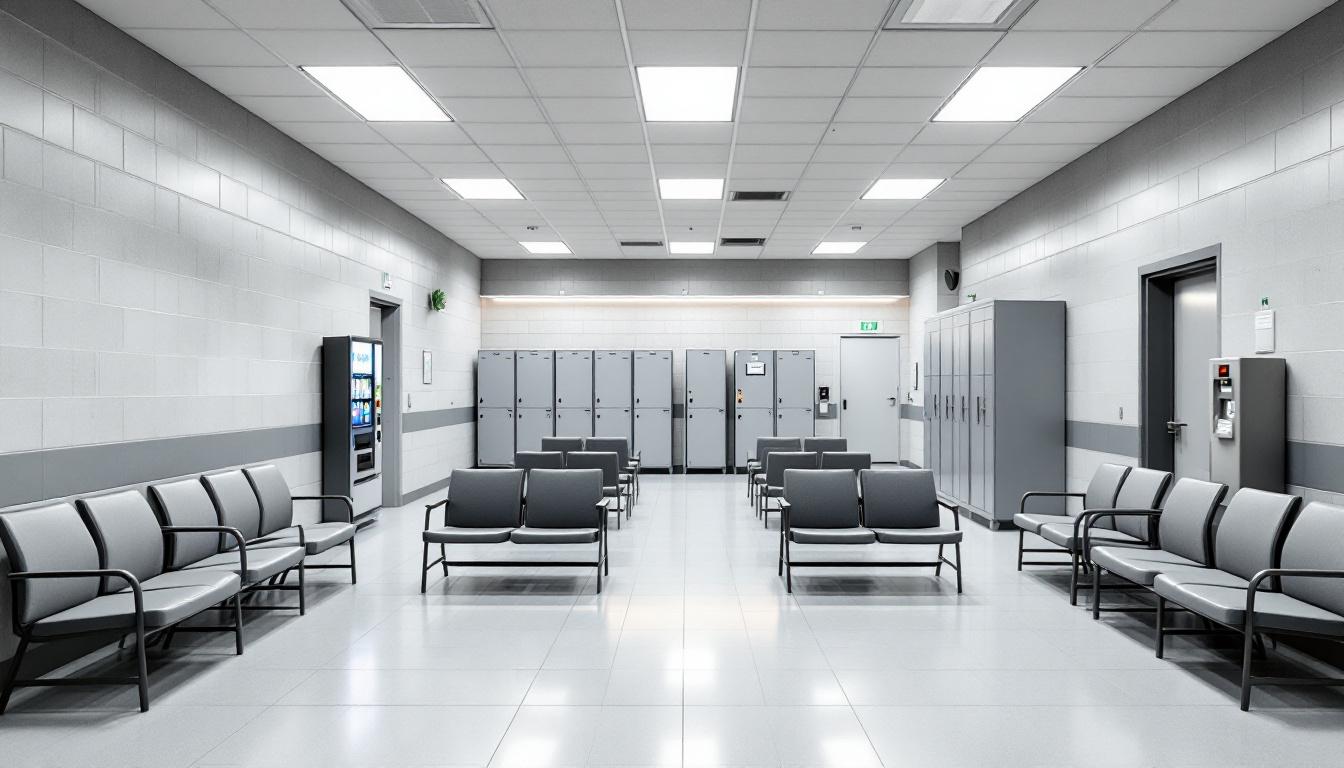
Organizational protocols at Monroe County Jail actively shape every aspect of the population's experience, creating a structured environment where routines supply stability and predictability. At present, the facility operates on a systematic schedule that typically begins with morning counts and continues through designated periods for meals, programming, and recreation. The population generally follows established timeframes for activities, with staff coordinating movements between housing areas and common spaces. Security procedures are woven throughout these routines, ensuring orderly transitions while maintaining safety protocols that govern daily operations.
Housing units at the facility are arranged to accommodate different classification levels, with the population assigned to appropriate areas based on various factors including security needs and program participation. Living accommodations typically include dormitory-style or cell-based housing, where residents may share space with others in their classification group. Personal property allowances generally permit basic necessities and approved items, while commissary services usually provide additional supplies and food items for purchase. Also, dining arrangements often involve scheduled meal times in designated areas, with the population receiving meals that meet nutritional standards and dietary requirements.
Structured programming schedules supply opportunities for education, vocational training, and personal development, though availability may vary based on resources and facility capacity. Recreation and exercise opportunities typically include access to outdoor areas or gymnasium facilities during designated periods, allowing the population to maintain physical fitness and social interaction. However, visitation policies generally establish specific days and times for family contact, often conducted through secure video systems or in-person visits following established security protocols. Work assignments within the facility may include kitchen duties, maintenance tasks, or administrative support, providing structure and potentially reducing time served. Communication options usually encompass phone privileges and mail services, helping the population maintain connections with family and support systems during their stay.
Ready to Connect?
Start communicating with your loved one today
Search for an Inmate
